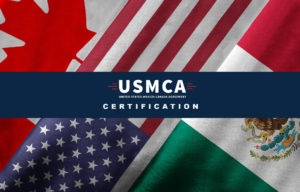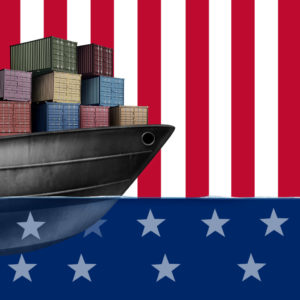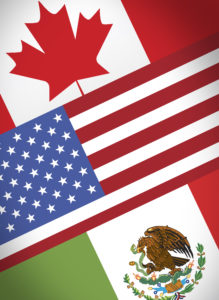News & Insights
Commerce Department and ZTE Reach New Agreement on U.S. Export Violations
On June 7th, the Commerce Department announced that Zhongxing Telecommunications Equipment Corporation and ZTE Kangxun Telecommunications Ltd. (collectively “ZTE”) agreed to additional civil penalties and compliance measures in exchange for their removal from the Bureau of Industry and Security (“BIS”) Denied Persons List, thereby allowing them to regain access to the U.S. market. ZTE, the second largest smartphone manufacturer and telecommunications company in China, reportedly sources nearly 30% of its raw materials, parts and components from U.S. suppliers. ZTE was previously sanctioned by the BIS for engaging in illegal reexports of U.S. products to Iran and North Korea and was nearly forced out of business. The new agreement imposes significant additional civil penalties on ZTE and additional corrective measures, as discussed in greater detail below. U.S. companies take note: ZTE has not yet been removed from the Denied Persons List and U.S. companies are still prohibited from doing business with ZTE without prior authorization from the BIS. However, there appears to be some light at the end of the tunnel for ZTE’s future business dealings with the U.S.
Origins of the ZTE Case
By way of background, in March 2017, ZTE entered a settlement agreement with the BIS in which it agreed to a combined civil and criminal penalty of $1.19 billion for, among other things, illegally shipping telecommunications equipment that was subject to the U.S. Export Administration Regulations (“EAR”) to Iran and North Korea in violation of U.S. law. The BIS agreed to suspend its proposed denial of ZTE’s export privileges provided that it satisfied all of the terms of the settlement agreement and refrained from committing additional EAR violations.
However, on April 16th, the Commerce Department moved forward with adding ZTE to the Denied Persons List after it was discovered that ZTE had made false statements to the BIS and failed to comply with the specified terms of the settlement agreement. Specifically, ZTE originally promised to fire four senior employees and take disciplinary action against the other responsible employees, including reducing their bonuses or issuing formal letters of reprimand. The BIS discovered that, although ZTE did fire the four senior employees as promised, it paid full bonuses to the remaining employees and failed to issue any letters of reprimand. Under the April 16th denial order, ZTE was immediately prohibited from participating in any way in transactions that are subject to the EAR. The BIS’ denial order was to be imposed against ZTE for a period of seven years, until March 13, 2025. As a result of the sanctions, ZTE was nearly forced to cease its operations.
The New Agreement with ZTE
Under the new agreement just reached, ZTE will pay an additional civil penalty of $1 billion and place an additional $400 million in an escrow account that would be applied in the event that ZTE were to violate the EAR in the future. In addition to these hefty penalties—
- ZTE will be required to remove its entire board of directors and senior management within thirty (30) days.
- A team of third party special compliance monitors, who will be selected by and will answer to the BIS, will oversee ZTE’s U.S. export compliance activities in real-time.
- The BIS will impose another denial order on ZTE that will be suspended for ten (10) years; however, the denial order may be activated at any time if ZTE were to commit additional violations of the EAR.
In its press release, the BIS described the new agreement with ZTE as the most severe civil and administrative penalties that have ever been imposed on a company for violations of the EAR.
Again, the new agreement with ZTE is not yet in force, ZTE has not been removed from the Denied Persons List, and U.S. persons are still prohibited from dealing with ZTE without the BIS’ prior authorization. Specifically, U.S. persons are still prohibited from:
- Exporting or reexporting (directly or indirectly) any item that is subject to the EAR to ZTE companies, which includes not only commodities and software but also technical data;
- Facilitating the acquisition or attempted acquisition by ZTE of ownership, possession, or control of any item subject to the EAR that has been or will be exported from the United States, including financing or other support activities;
- Acquiring or facilitating the acquisition from ZTE of any item subject to the EAR that has been exported from the United states;
- Obtaining from ZTE in the United States any item subject to the EAR with knowledge or reason to know that the item will be exported from the United States;
- Engaging in any transaction to service any item subject to the EAR that has been or will be exported from the United States and which is owned, possessed or controlled by ZTE—the term “service” includes installation, maintenance, repair, modification or testing; or,
- Servicing any item, of whatever origin, that is owned, possessed or controlled by ZTE if such service involves the use of any item that is subject to the EAR that has been or will be exported from the United States.
U.S. companies should also be aware that, on June 11th, the Senate approved an amendment to the National Defense Authorization Act, introduced by Senator Chris Van Hollen (D-MD) and Tom Cotton (R-AR), that would block the lifting of sanctions on ZTE and prohibit the U.S. Government from dealing with ZTE and another Chinese telecommunications company, Huawei. (Huawei is currently under investigation by the U.S. Government for violations of the EAR.)
These recent developments will impact many U.S. companies that have previously supplied parts and components to ZTE or otherwise provided technical support. If you have any questions regarding U.S. export sanctions against ZTE, U.S. export controls or other international trade issues, please contact Melissa Proctor at Miller Proctor Law PLLC (melissa@millerproctorlaw.com).
News & Insights

BIS Implements Additional Sanctions Against Russia, Belarus, Crimea and Iran
On May 23, 2023, BIS published a Final Rule amending the Export Administration Regulations (“EAR”) to expand the current export controls and sanctions levied against Russia and Belarus, Crimea, and Iran in response to the ongoing aggression against Ukraine. The

USMCA Certification Requirements and Sample Template
Under the United States-Mexico-Canada Agreement (USMCA) that entered into force on July 1, 2020, there is no required certificate of origin form or specified format for exporters, producers, or importers to use to certify that their goods satisfy the USMCA


